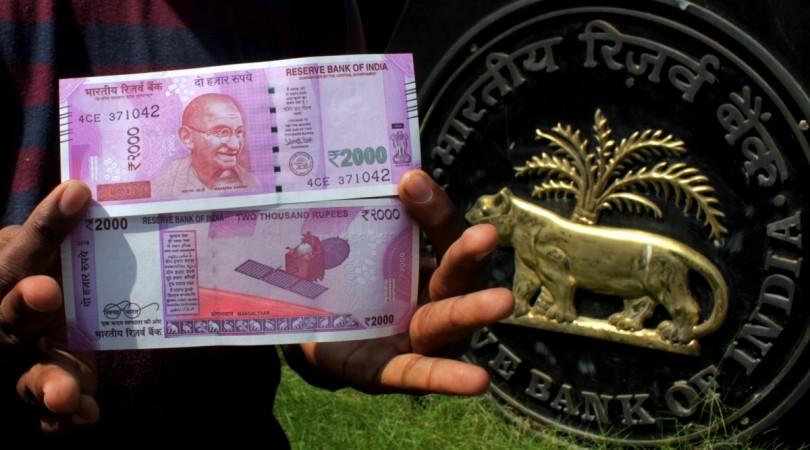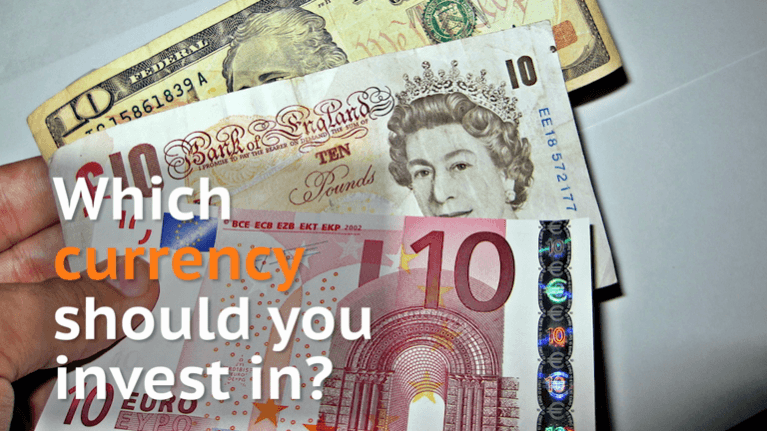
The rupee plunged further on Wednesday, setting a new record low of 73.42 against US dollar. The continued hammering the Indian rupee received was owing to a combination of factors -- robust US dollar, rising crude prices, India's widening trade deficit, the expectation that the US central bank may raise rates further and the increasing risk aversion in emerging market investors.
The Reserve Bank of India did make money market interventions to arrest the rupee's weakening but they haven't been effective beyond a point. Analysts are expecting that the rupee may weaken further.
However, the pounding the rupee gets is good news, rather great news, for millions of Indians. The weak rupee is inducing an adrenaline rush in the Indian expatriates across the world. That's the tale of two Indias!
In Gulf countries, money exchange officials say Indian expatriates are borrowing money to take advantage of the record high exchange rates.
in the UAE, where an estimated three million Indians live and work, the rupee touched an-all time record exchange rate of 20.08 against the UAE dirham. That's a substantial bonanza for the Indian expatriate who is sending money home.

The outlook on rupee is so downcast across the region, that expatriates are even looking to defer money transfers to India.
The Gulf News reports that the expectation is that rupee will fall below 21 against dirham soon, promoting some expats to defer transfers.
"The Indian rupee is on the verge of reaching a new historic low by breaching the 20 mark for a UAE dirham. [It is] likely to fall further and may touch 21 against the UAE dirham by the end of the year," Sudhesh Giriyan, COO of Xpress Money, told Gulf News.
Other analysts say the onslaught on rupee will continue in 2019. "Looking at the present dynamic conditions, both economic and political, and the forthcoming India elections next year, we expect the rupee to slip further by [the first quarter of] 2019," Promoth Manghat, executive director and group CEO of Finblr, told the daily.
According to India's Ministry of Overseas Indian Affairs some 25 million expatriates are sending money home, making India the biggest remittance receiver in the world. The lion's share of remittances to India come from the United Arab Emirates, the United States, Saudi Arabia, Kuwait, the United Kingdom, Qatar, Oman and Canada -- in pretty much this order.
The bulk of the billions in remittances, however, is concentrated in a bunch of India states such as Kerala, Telangana, Andhra Pradesh and Gujarat. Kerala, which receives as much as 35 percent of remittances from the Gulf courtiers, has even earned the sobriquet of remittance economy.
Where's rupee heading?
With the currency breaching the psychological 73-mark against the dollar on Wednesday, the RBI is expected to take tough actions to prop it up. The RBI is kicking off its three-day rate setting meeting and the analysts all but agree that the central bank will hike repo rates further.
The RBI had earlier said that it would funnel as much as Rs. 36,000 crore into the money markets this month to offer succour to the rupee.
However, the general view is that the currency will drop further. Chief among the factors that will drive rupee further down are the hardening crude prices and the chances of US Fed raising rates further.
While the expatriates love the fact that each of their dollars or dirham's translates into more money in rupee terms, they would also have to reckon the fact that their assets back home suffer depreciation due to the rupee's weakening.
Meanwhile for regular Indians, the downward spiral of the rupee is adding further layers of misery, much as they are pummelled by the ever rising fuel prices and the resultant inflation.
The Indians are already feeling the pinch from rising home loan EMIs. Banks such as SBI, ICICI Bank, Punjab National Bank and HDFC, have already hiked the lending rates and this will soon have an impact on home loan EMIs of millions of Indians.
Moreover, with the rupee weakening, credit for business will become dearer, leaving an impact on corporate profits and on share prices, by extension.
A whole gamut of FMCG and other consumer goods will be costlier too. In addition, foreign education and foreign travel will also become costlier. Even the prices of pulses and edible oils will go up. Continued fall in rupee will make a whole lot businesses that depend on imports vulnerable as well.
And soon the job markets will feel the pinch as well. There will soon be price increases in automobile sector as well, and the prices of all electronic gadgets, mobile phones etc, wherein imported materials are used, will go up.














